Visiting William Butler Yeats grave – Drumcliffe Sligo
W.B Yeats, whose poem said “tread softly, for you tread on my dreams”
Where is the great Irish Poet Yeats Buried? Yeats was laid to rest in 1948 under the shadow of Ben Bulben Mountain in Drumcliffe, Cemetery County Sligo, Ireland. An unassuming grave holds his remains in St. Columba’s Church on the Wild Atlantic Way.
There is no cost to view the grave or to enter the church but donations are always welcomed. There is a parking lot a lovely church and a graveyard along with a small tourist centre and cafe and across the road, you will spot the remains of an ancient Round Tower.
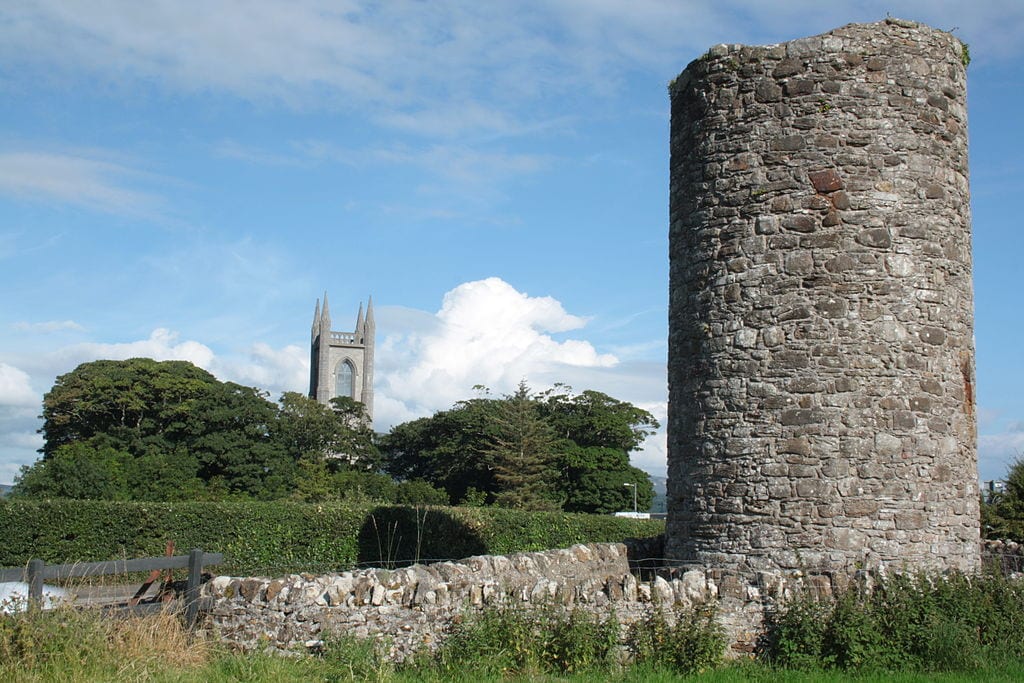
Under Ben Bulben – Yeats’ famous epitaph
VI
Under bare Ben Bulben’s head
In Drumcliff churchyard Yeats is laid.
An ancestor was rector there
Long years ago, a church stands near,
By the road an ancient cross.
No marble, no conventional phrase;
On limestone quarried near the spot
By his command these words are cut:Cast a cold eye
On life, on death.
Horseman, pass by!
This is the epitaph that was placed on Yeat’s Grave at his request.
Yeat’s Grave in Drumcliffe, Sligo
W. B Yeats epitaph
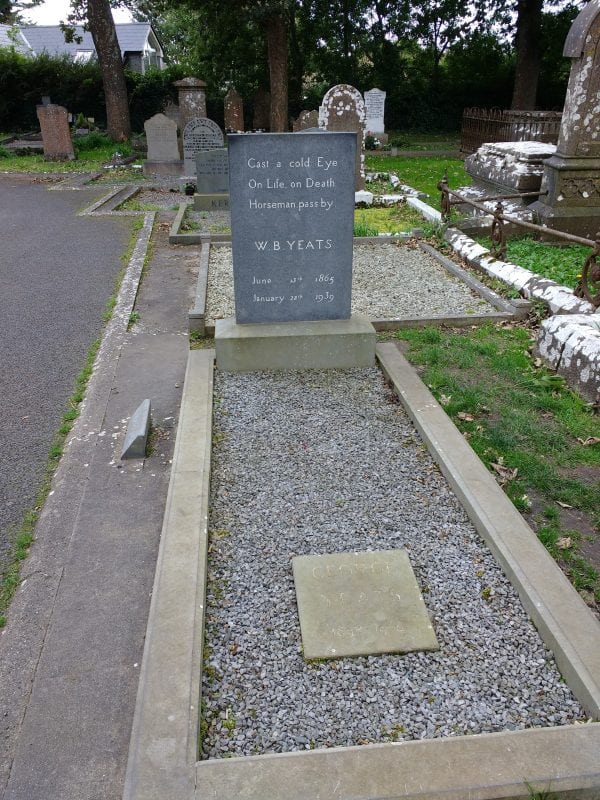
Where is drumcliffe cemetery?
The cemetery is located at Drumcliff South, Co. Sligo, Ireland just off the N15 Wild Atlantic Way highway from Donegal to the north and Mayo to the South.
This Church and cemetery is a place of quiet beauty, the stunning mountains that surround the Churchyard and the outstanding natural beauty that is Sligo will haunt you forever.
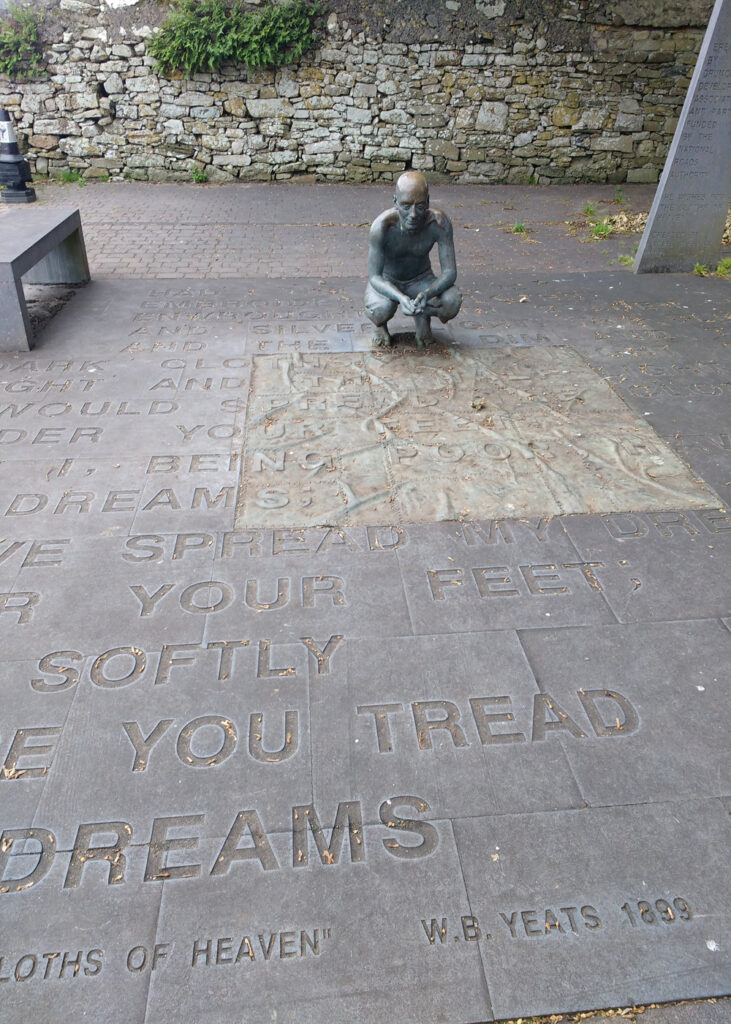
Where is yeats grave? WB Yeats grave can be seen immediately within the graveyard and it faces an unparalleled view of the mountains in their many colours, washed by sunshine and cloud. The peace settles into your bones and you can hear Yeats poetry in your ears. Words cannot convey the silence, peace and beauty of this place.
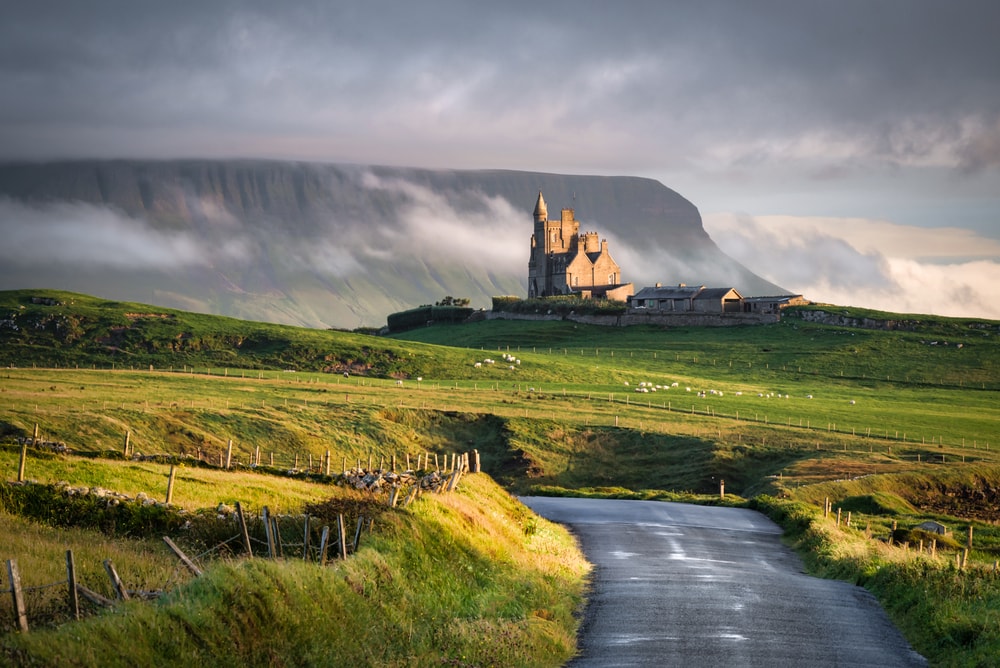
Drumcliffe Church itself is connected to the Yeats family through his great-grandfather who was a rector here in Drumcliffe. Yeats died in the South of France on 28 January 1939 and was buried at Roquebrune Cemetery.
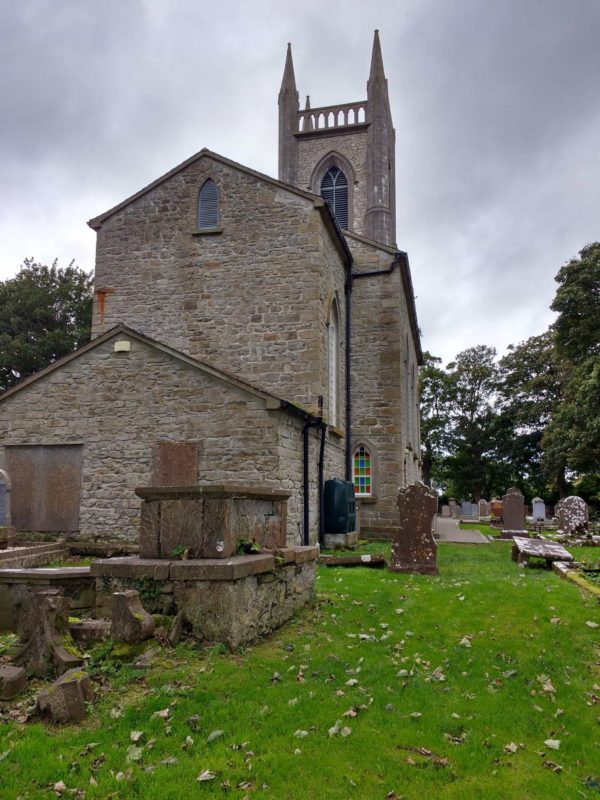
In 1948 his body was exhumed and brought back to Drumcliff. Yeats, who had strong family links to County Sligo, had asked to be reinterred in Drumcliff when press interest in his death had subsided. The poet instructed his wife:
“In a year’s time when the newspapers have forgotten me, dig me up and plant me in Sligo.”
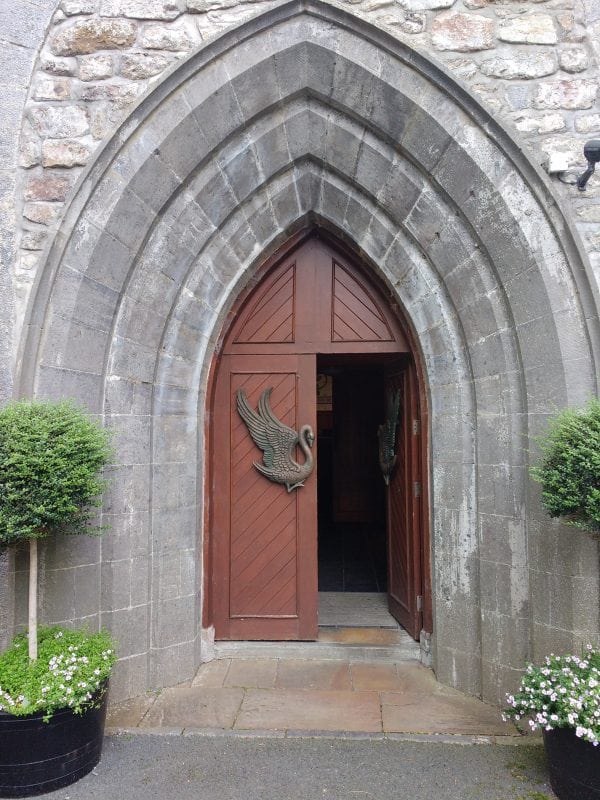
Where did Yeats die? Yeats died in France and his burial has been an ongoing saga for many years with respect to Yeats’s bones that were supposedly sent to Ireland from France. However, it turns out that it was a bit of a conspiracy and that the bones resting in Yeats’s place are of a few French folks and Yeats’ bones have been lost over the years. You can read more about the controversy here.
As Yeats requested in his last poem – he was buried within sight of Ben Bulben.
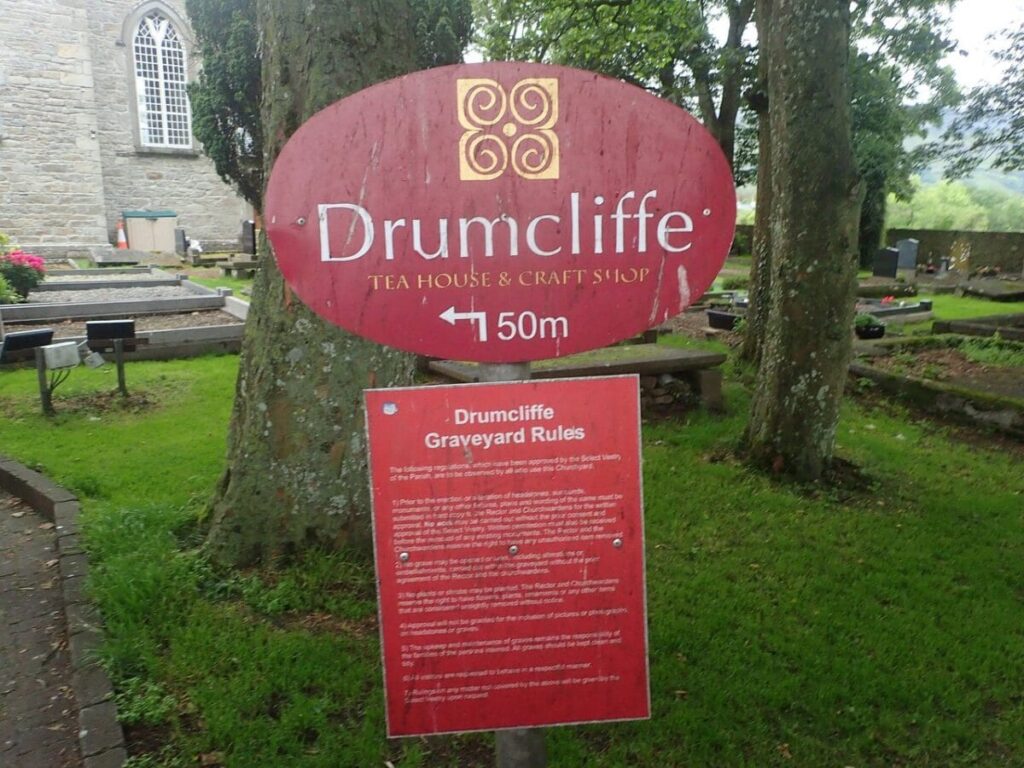
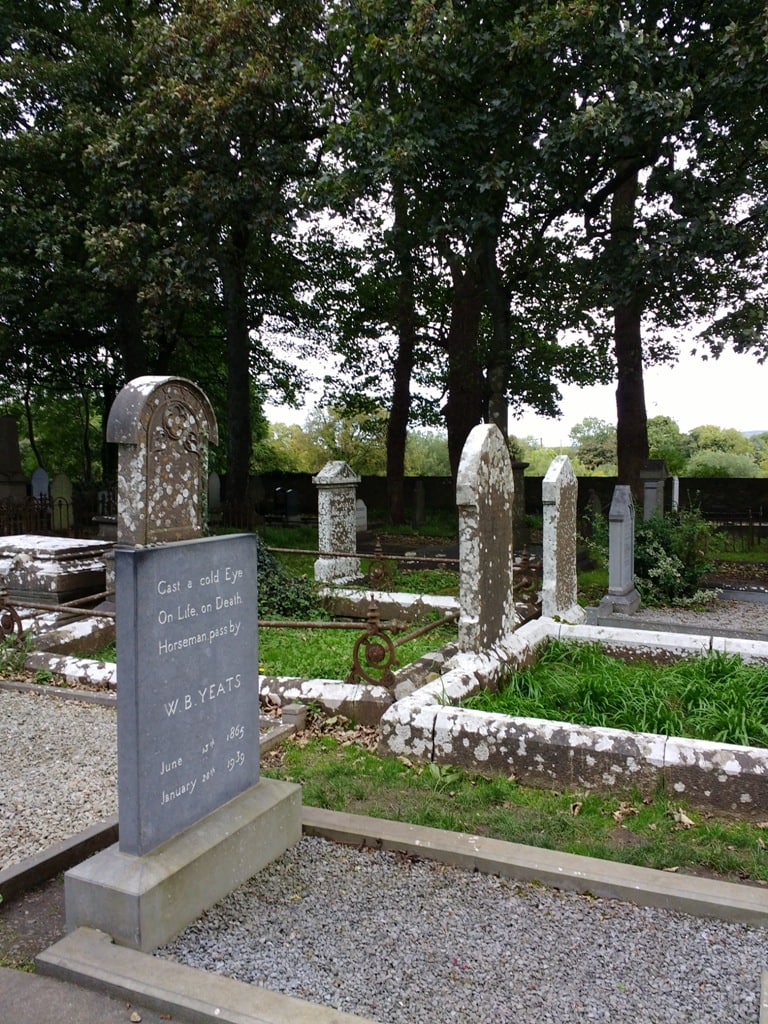
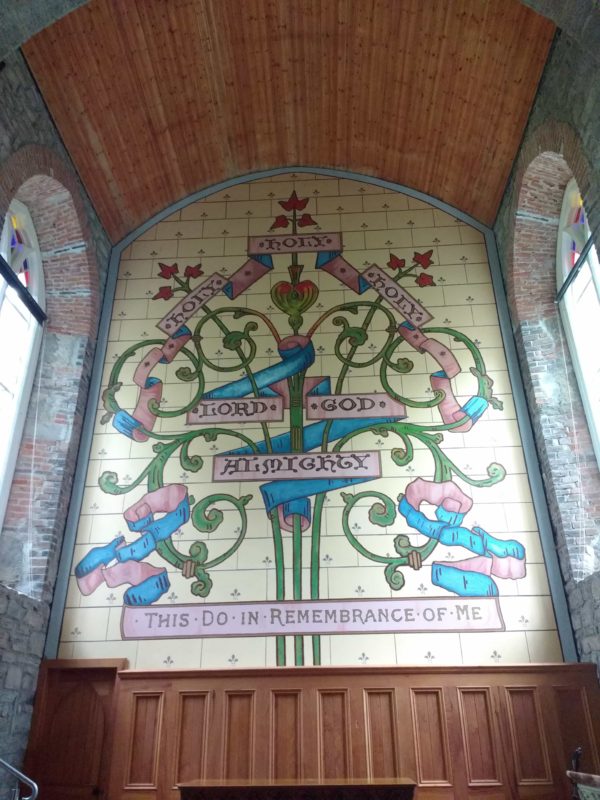

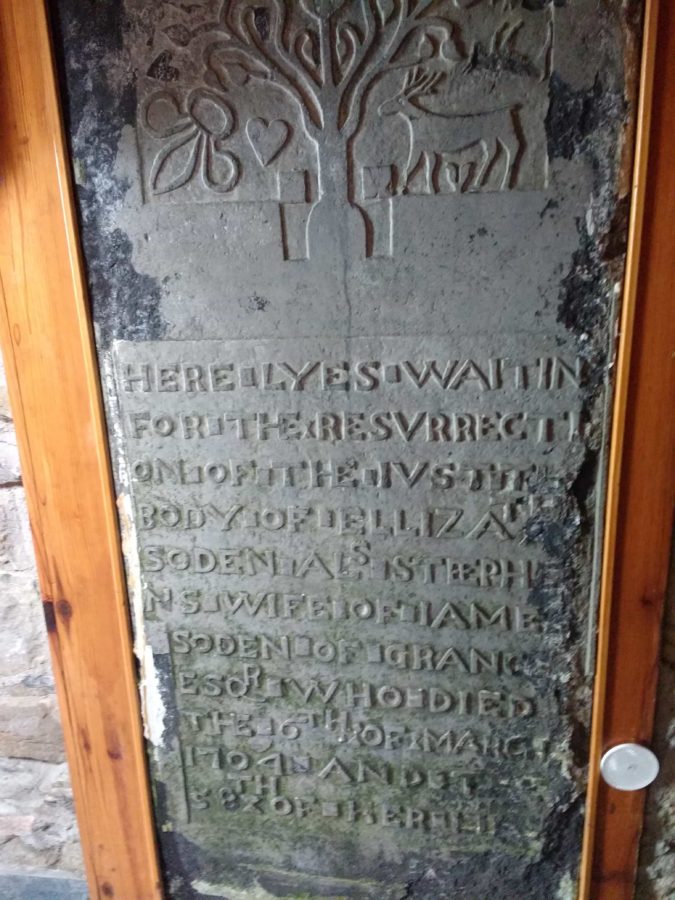
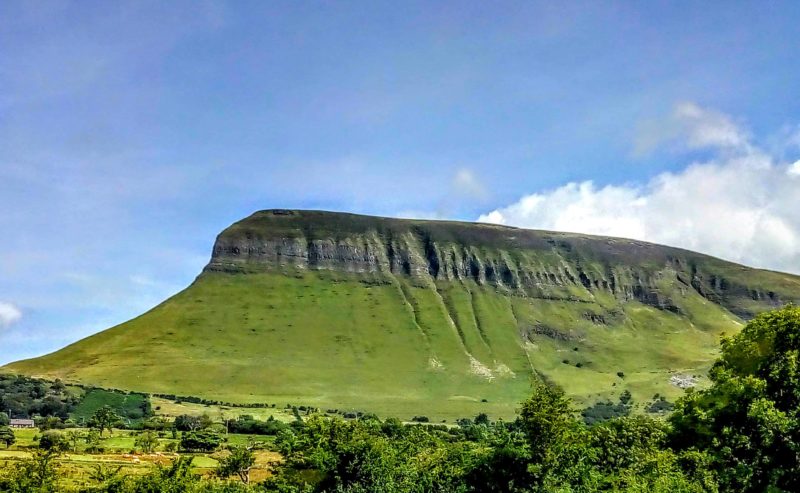
The area has been made more tourist-friendly with the addition of conveniences like a tea room and washroom facilities. There is also a small store where you can purchase Yeat’s books and memorabilia.
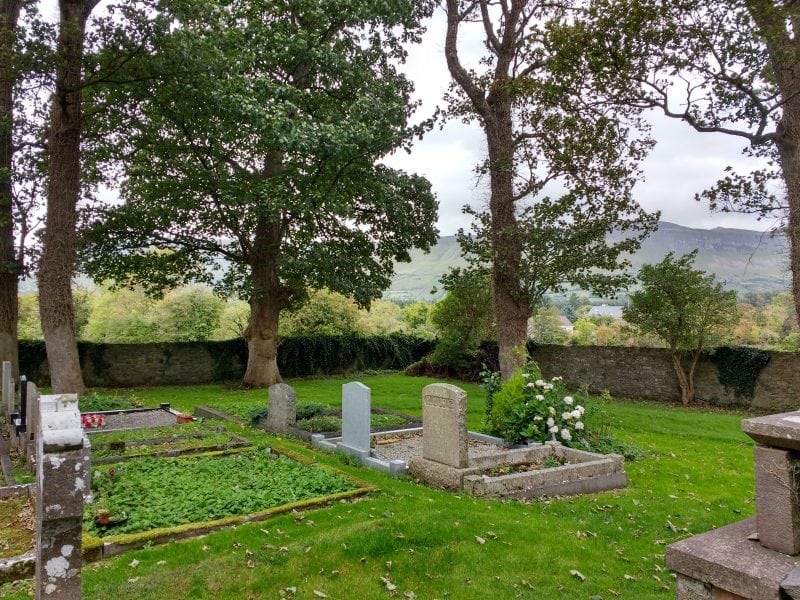
The Sligo route is also a major stop on the Wild Atlantic Way if you are really interested in touring the WAW there are plenty of things to choose from, the Cliffs of Moher and the Burren, Donegal, or how about going on a mission to find Puffins?
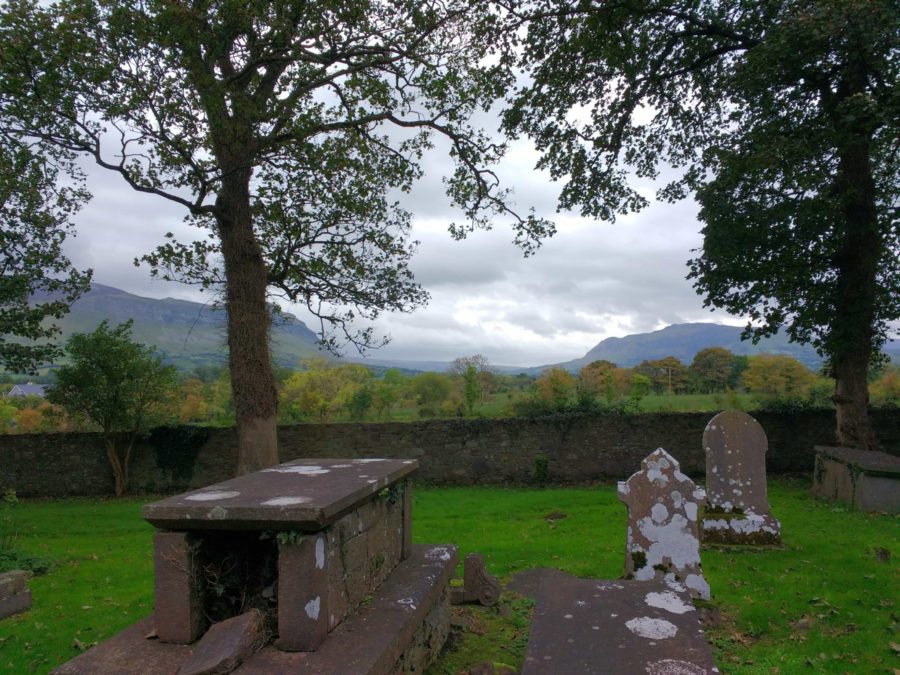
If you are looking to see more of Ireland from outside Dublin in Ireland’s Wild Atlantic Way here are a few articles for you to check out.
you might also like
Sensational Sligo – Things to do in Sligo Ireland
Planning a dream trip to Ireland? Everything you need to know
